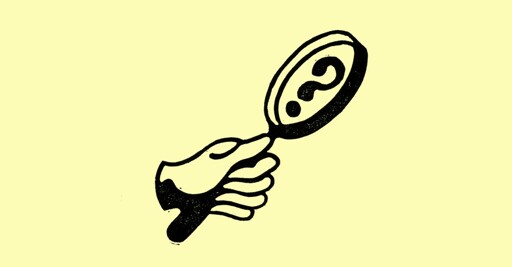In the 1950s, the TV quiz show Twenty-One stumbled upon a viewership-boosting strategy that for a brief period of time would be all the rage: cheating. The program fixed winners and losers, coached contestants, and generally dabbled in malfeasance. Other shows followed suit, scandal ensued, and Congress—Congress!—got involved.
I’m relieved to say that this quiz operates beyond the revisions to the Communications Act of 1934, so I’ll happily give you all the answers: They’re right there in The Atlantic.
Find last week’s questions here, and to get Atlantic Trivia in your inbox every day, sign up for The Atlantic Daily.
Monday, October 20, 2025
What retailer recently announced that it will carry the weight-loss drug Ozempic at a discounted price of $499 a month—meaning you can get your GLP-1, a hot dog, and a fountain drink for $500.50? — From Emily Oster’s “Ozempic for All”The cultural theorist Dominic Pettman defines what modern-relationship term as “abandonment with a contemporary garnish” (adding, “When we came up with texting, we also came up with not texting”)? — From Anna Holmes’s “The Great [REDACTED] Paradox”In the way that runners have Strava, birders have eBird, and readers have Goodreads, what hobbyists are most likely to use the app Ravelry? — From Tyler Austin Harper’s “The Unexpected Profundity of a Movie About Bird-Watching”
And by the way, did you know—speaking of hobbies—that when he wasn’t writing contributions to the Western canon, the novelist Vladimir Nabokov kept himself busy observing and even discovering new species of butterflies? His lepidoptery fieldwork impelled full-time scientists to reconsider the classification of an entire genus.
That he also composed chess problems is thus hardly surprising. But before you go beating yourself up, consider what he didn’t do much of: sleep.
Until tomorrow!
Answers:
Costco. It’s a sign that prices for these “near-miracle drugs” are falling and will keep falling, Oster writes—undercutting the argument that they’re too costly to offer via Medicaid. Increasing the drugs’ accessibility through Medicaid, she says, would save lives. Read more.Ghosting. Holmes writes that Pettman’s new book might offer a less upsetting way to think about the sudden cutoff of communication, though it will require growing a thicker skin. Read more.Knitters. All of these hobby-specific apps have to some extent been gamified, with progress bars, unlockable achievements, or other metrics that Tyler worries are sucking the joy out of the hobbies themselves. Read more.
How did you do? Come back tomorrow for more questions, or click here for last week’s. And if you think up a great question after reading an Atlantic story—or simply want to share a scintillating fact—send it my way at trivia@theatlantic.com.
From The Atlantic via this RSS feed


